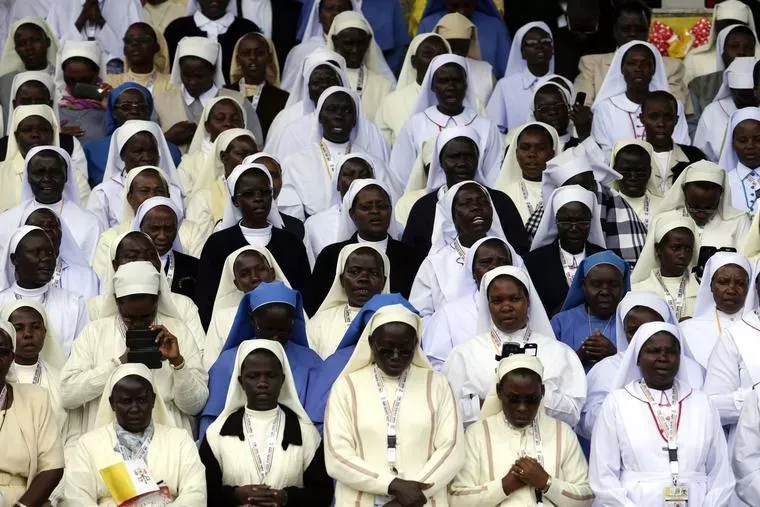“People look to Africa, and I believe that this is why the universal Synod on Synodality will reject this topic,” he added.
The Synodal Way’s leaders think otherwise, however. They are pushing instead for the upcoming synod to green-light their actions on same-sex blessings, ordination of women and the democratization of the Church’s governance, and supporters like Cardinal Robert McElroy of San Diego have openly expressed hope this in turn will facilitate implementation of the same dissenting agendas in the U.S. and other countries.
The clash between African and German perspectives on these issues is not a novelty.
At the time of the 2014 and 2015 Synods on the Family, African Church leaders were at the forefront of the pushback when the German Church lobbied for its secularized agendas. After the Africans mobilized in defense of orthodoxy, German Cardinal Walter Kasper grumbled that “they should not tell us too much what we have to do” when it comes to dealing with issues involving sexuality and marriage. He also ascribed African resistance to acceptance of homosexuality as stemming mainly from a cultural “taboo,” rather than a collective determination to be faithful to settled Catholic moral teachings.
It’s true that even before Christianity’s influence, preexisting African cultures were tethered to a traditional understanding of the family, including strong opposition to same-sex activity. But Africans’ strong family values should be seen as an asset, not a liability.
We can be grateful for this positive aspect of African culture, even while recognizing the profound social problems that continue to prevail across much of Africa. And in the specific area of homosexuality, traditional cultural beliefs have sometimes contributed to extremist policies in some nations. Such policies contradict what the Church teaches about respecting the dignity of same-sex-attracted persons and rejecting all forms of unjust discrimination against them.
It’s also true that in many places considerable work remains to be done in terms of improving the formation of Catholics who are members of the continent’s relatively young local Churches.
Yet what is most striking about the African flock are two undeniable blessings: their youthful vitality and their evangelical fervor for proclaiming the Gospel even in the context of intense and sometimes deadly persecution.
In contrast to the sparse and graying congregations present on Sundays in so many of the churches in Germany and other Western European nations, Masses in African nations are packed with young, exuberant Catholics who are eager to worship God reverently during their liturgies and to spread the love of Jesus afterward in service to others.
Here in the U.S. — where, unlike in Germany, the large majority of our Church leaders have not embraced the dissenting secularist agendas — we can be thankful as well as inspired by this fearless witness of African faith. It’s the kind of dynamism that will power the Church forward in the manner envisioned by St. John Paul II, Pope Benedict XVI and Pope Francis, the trio of popes who have shared the responsibility for initiating the era of New Evangelization ushered in by the Second Vatican Council.







